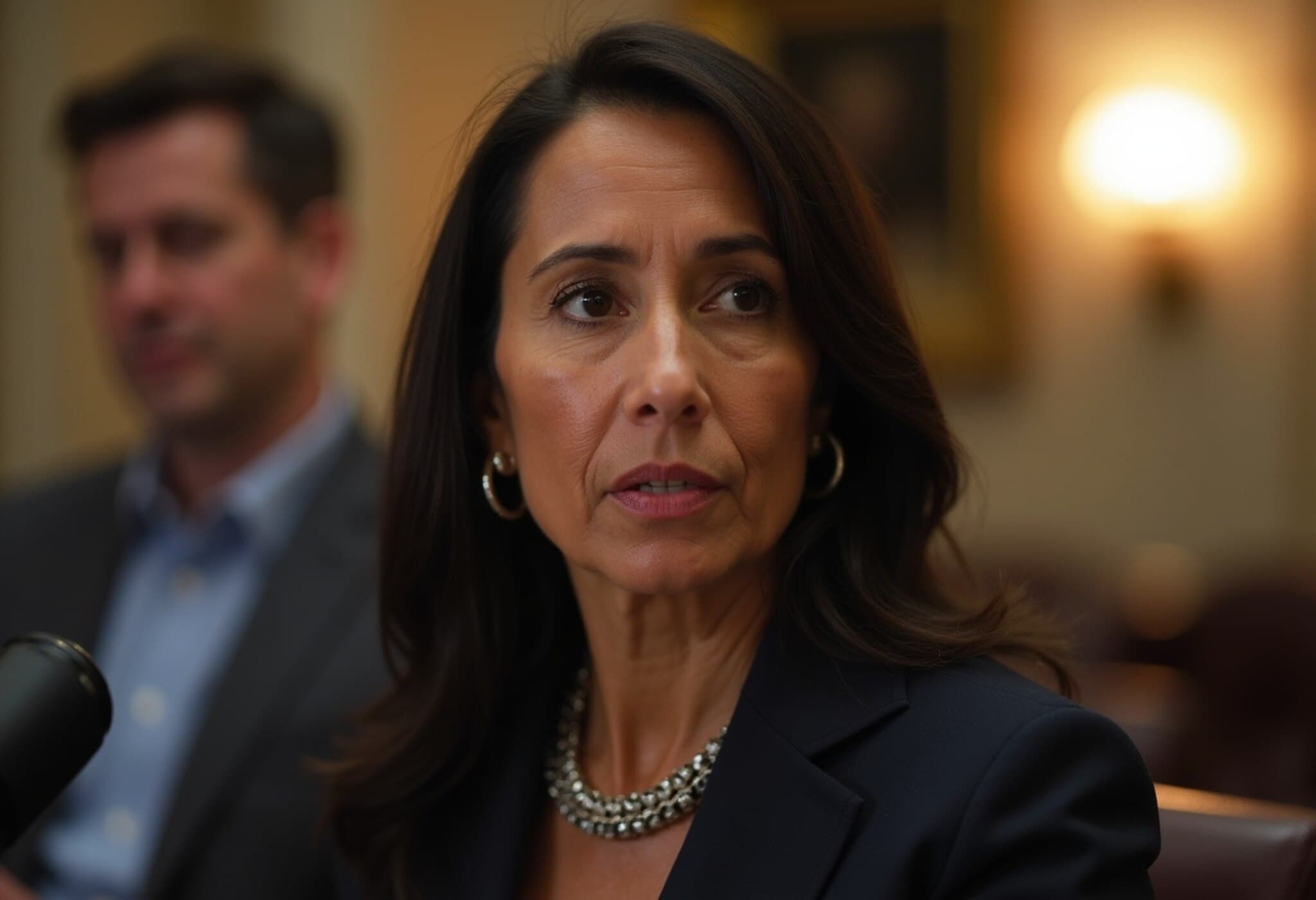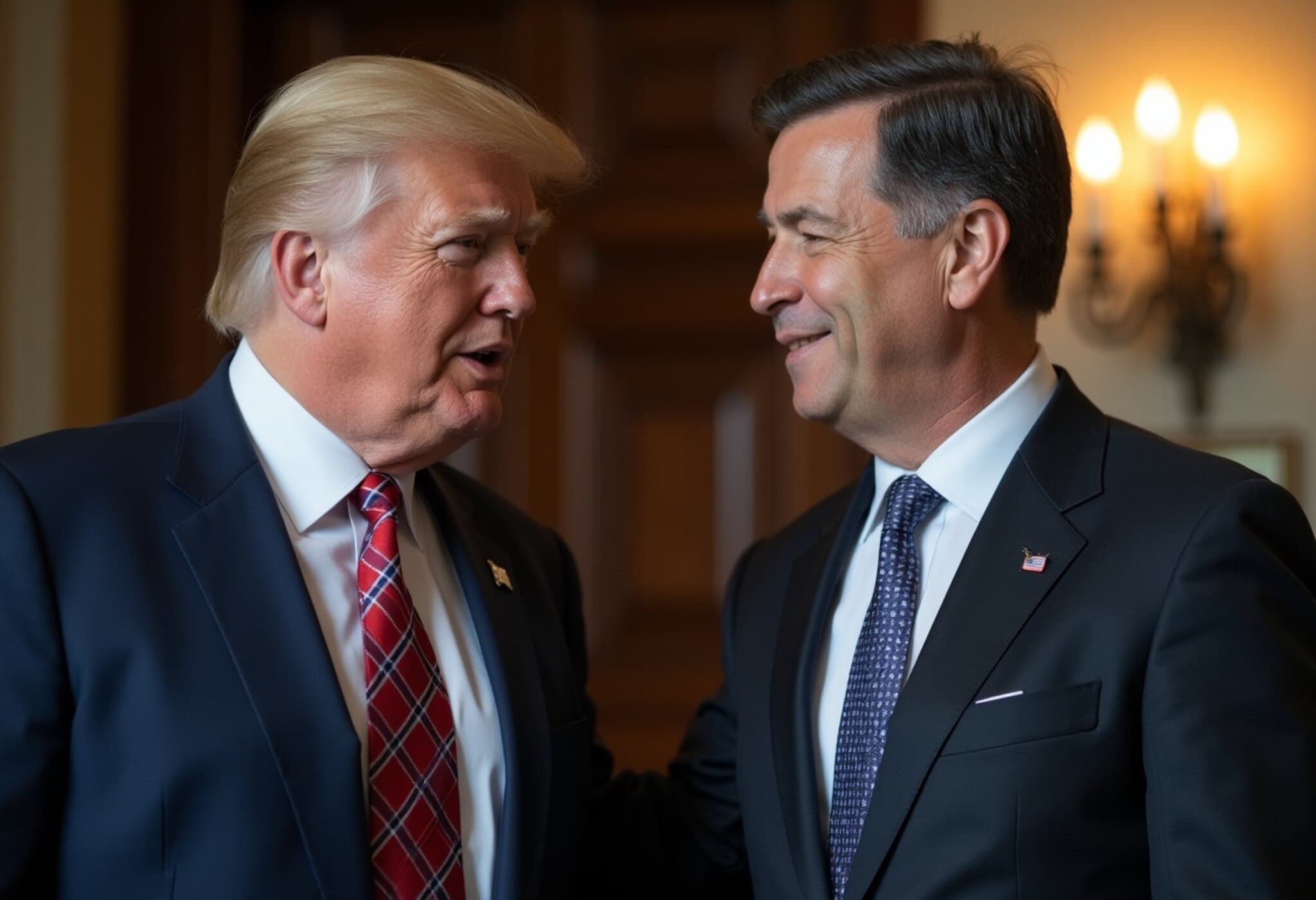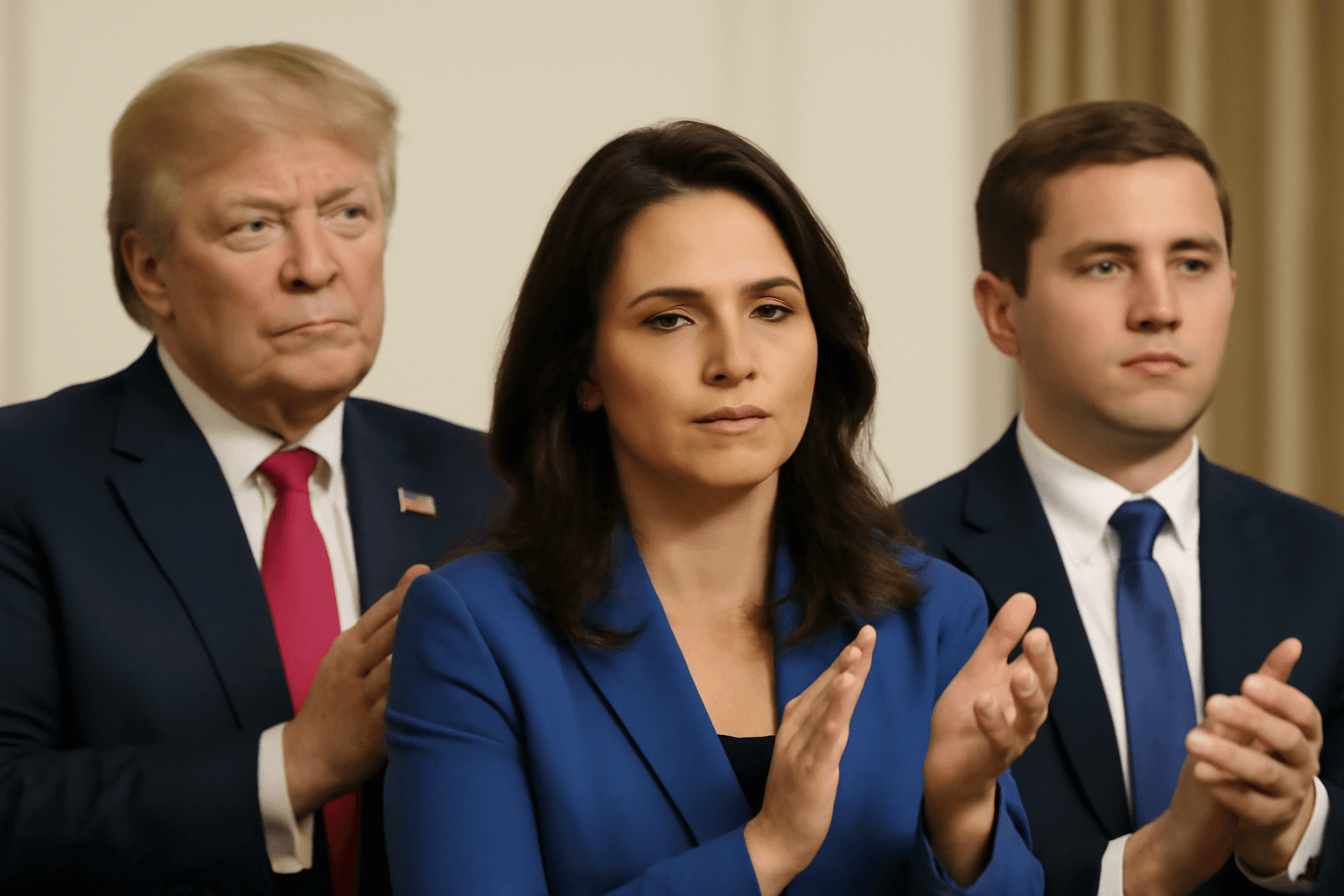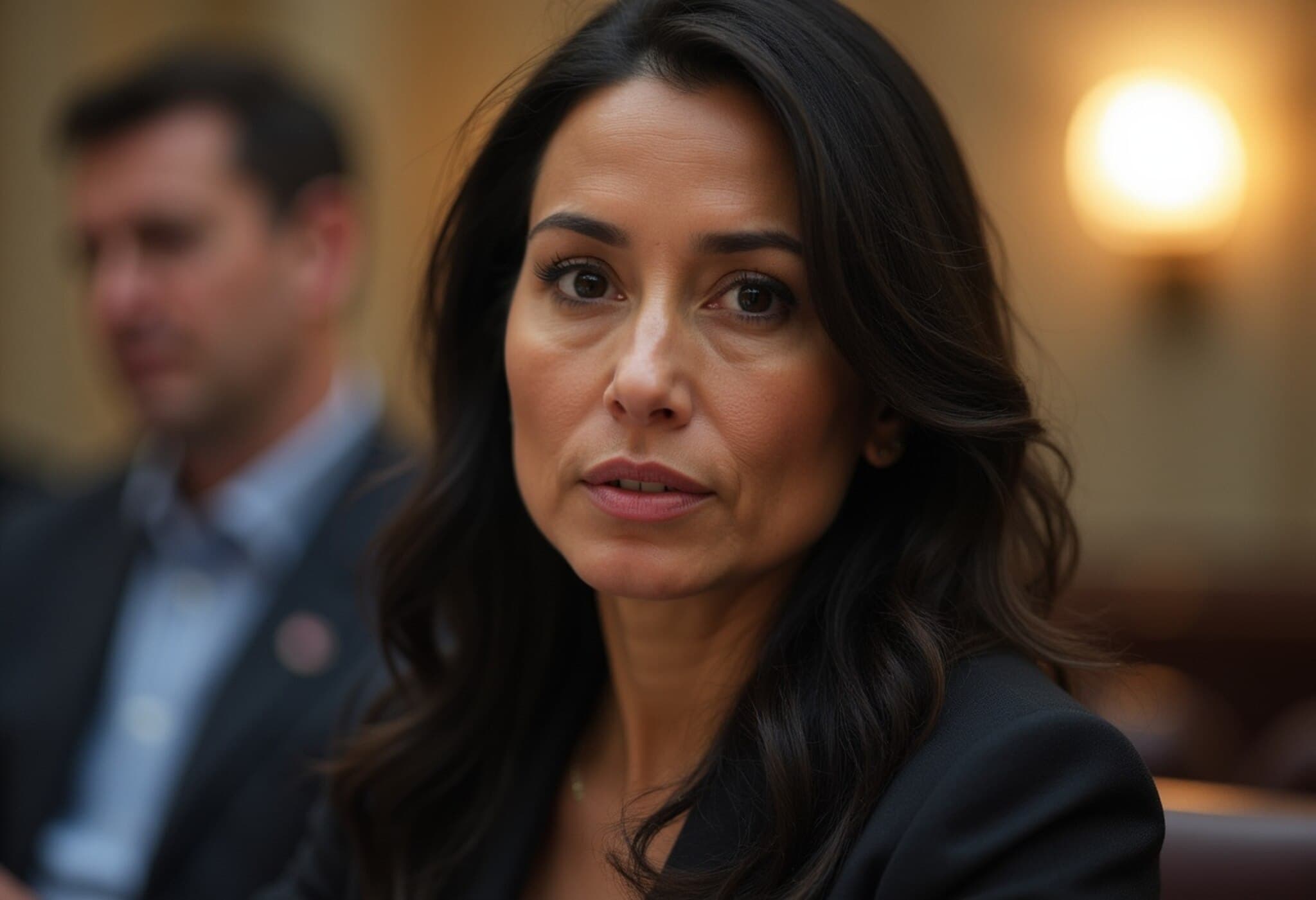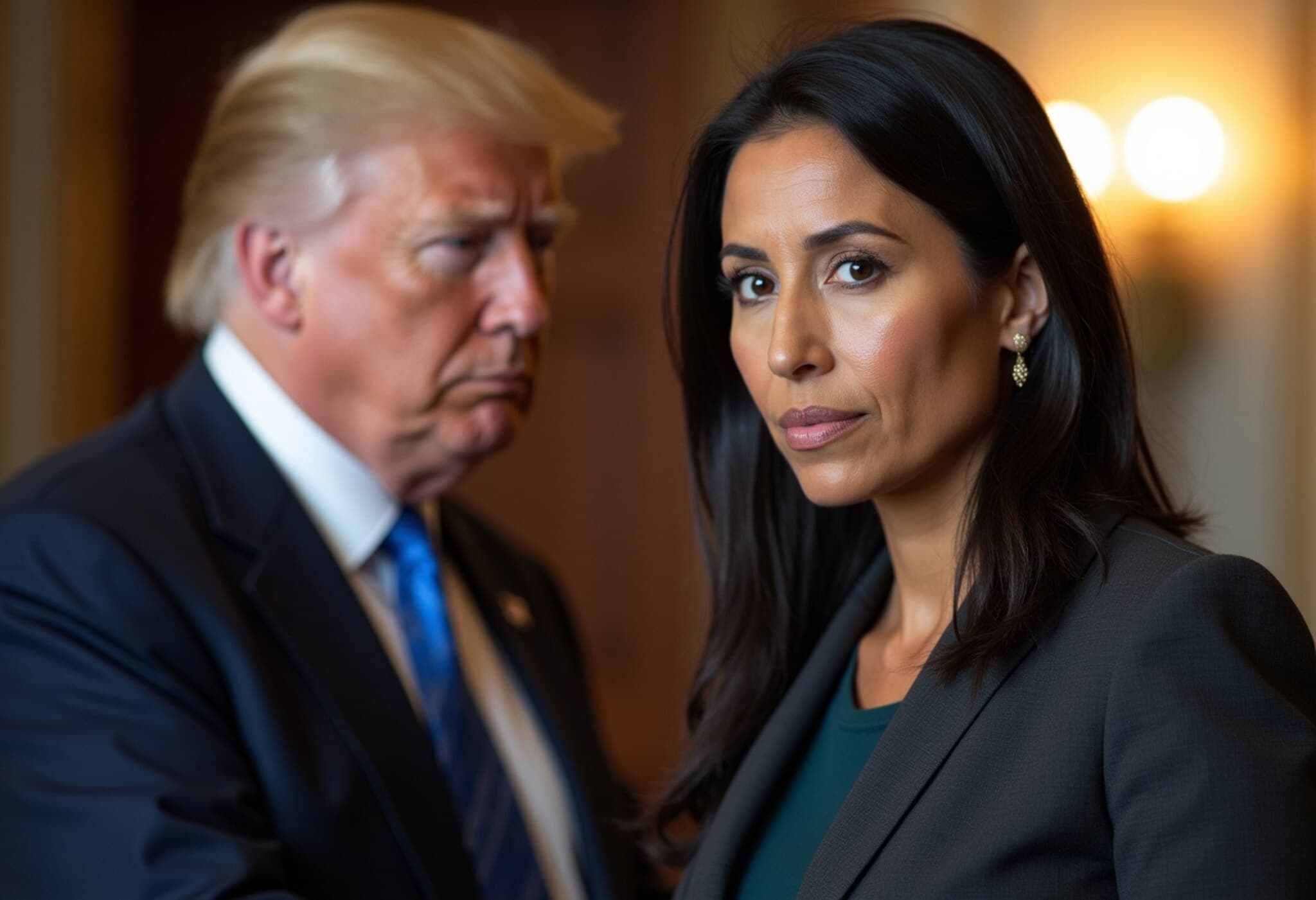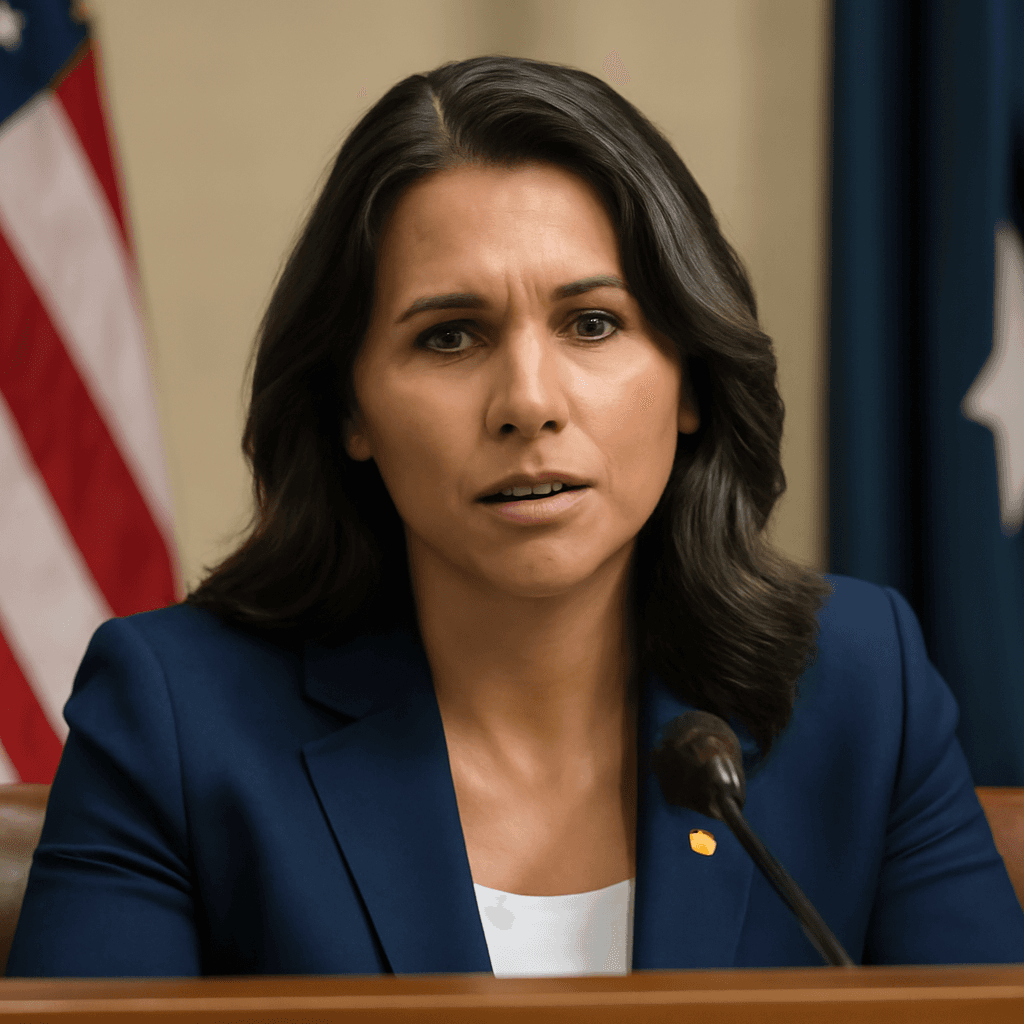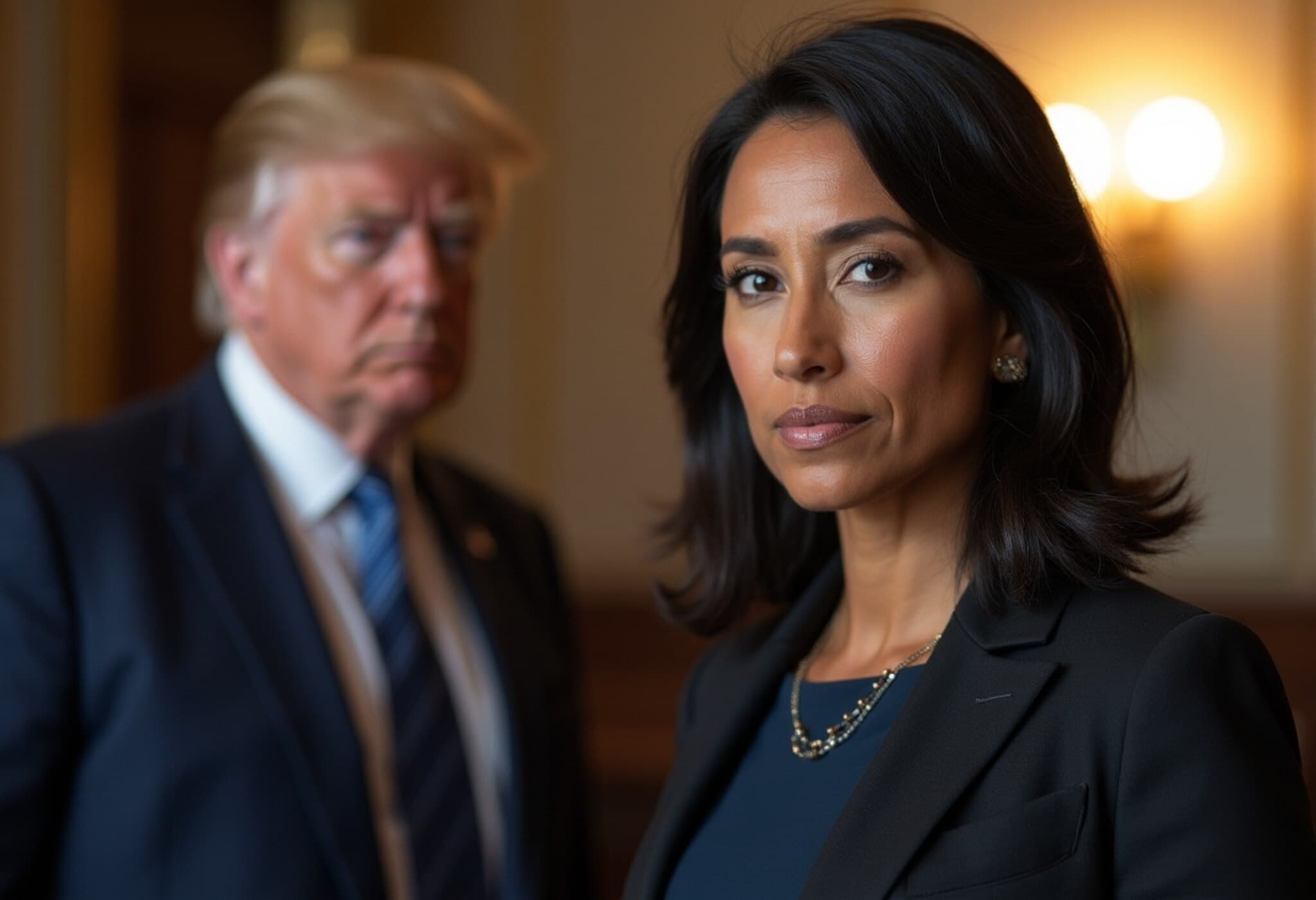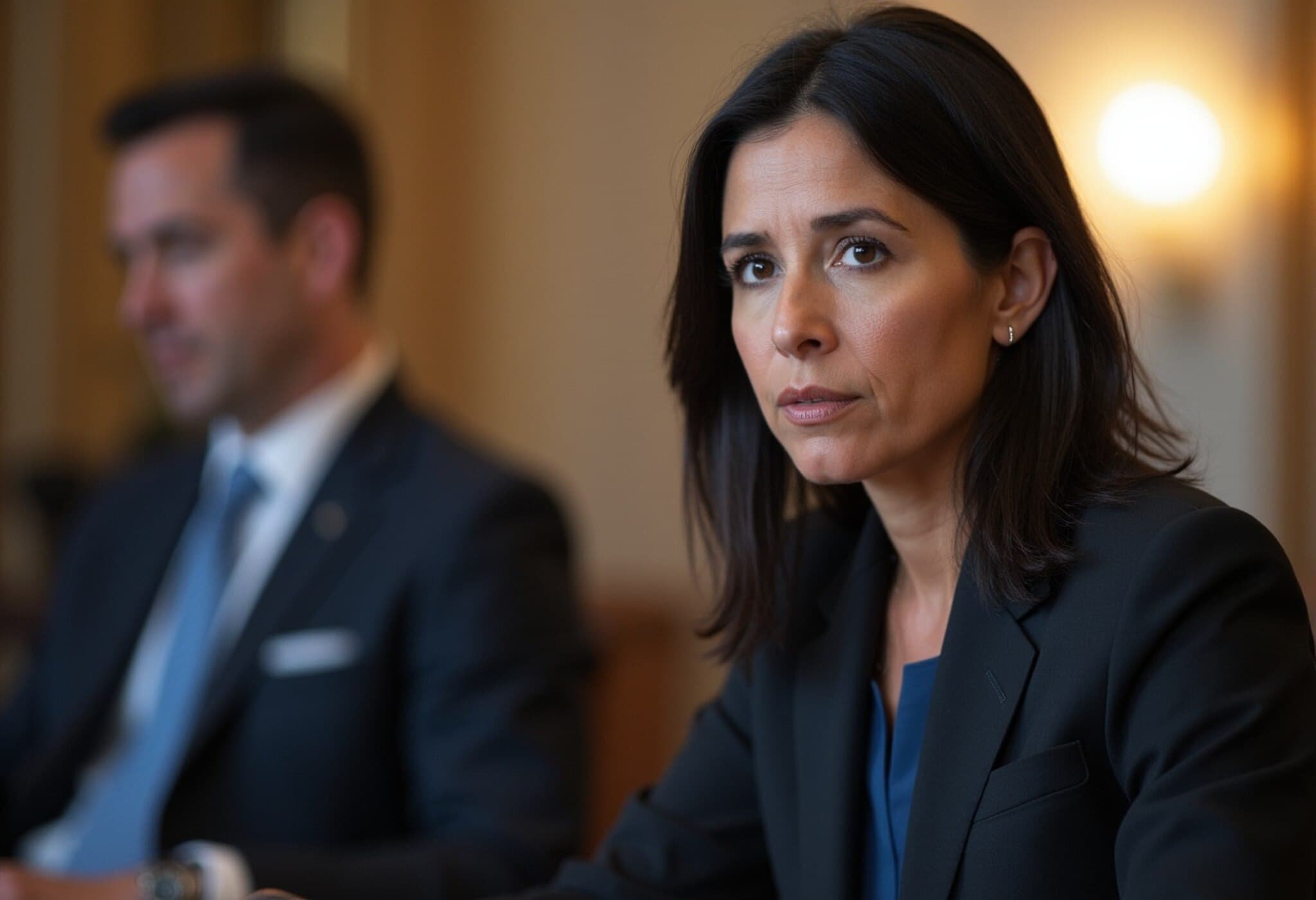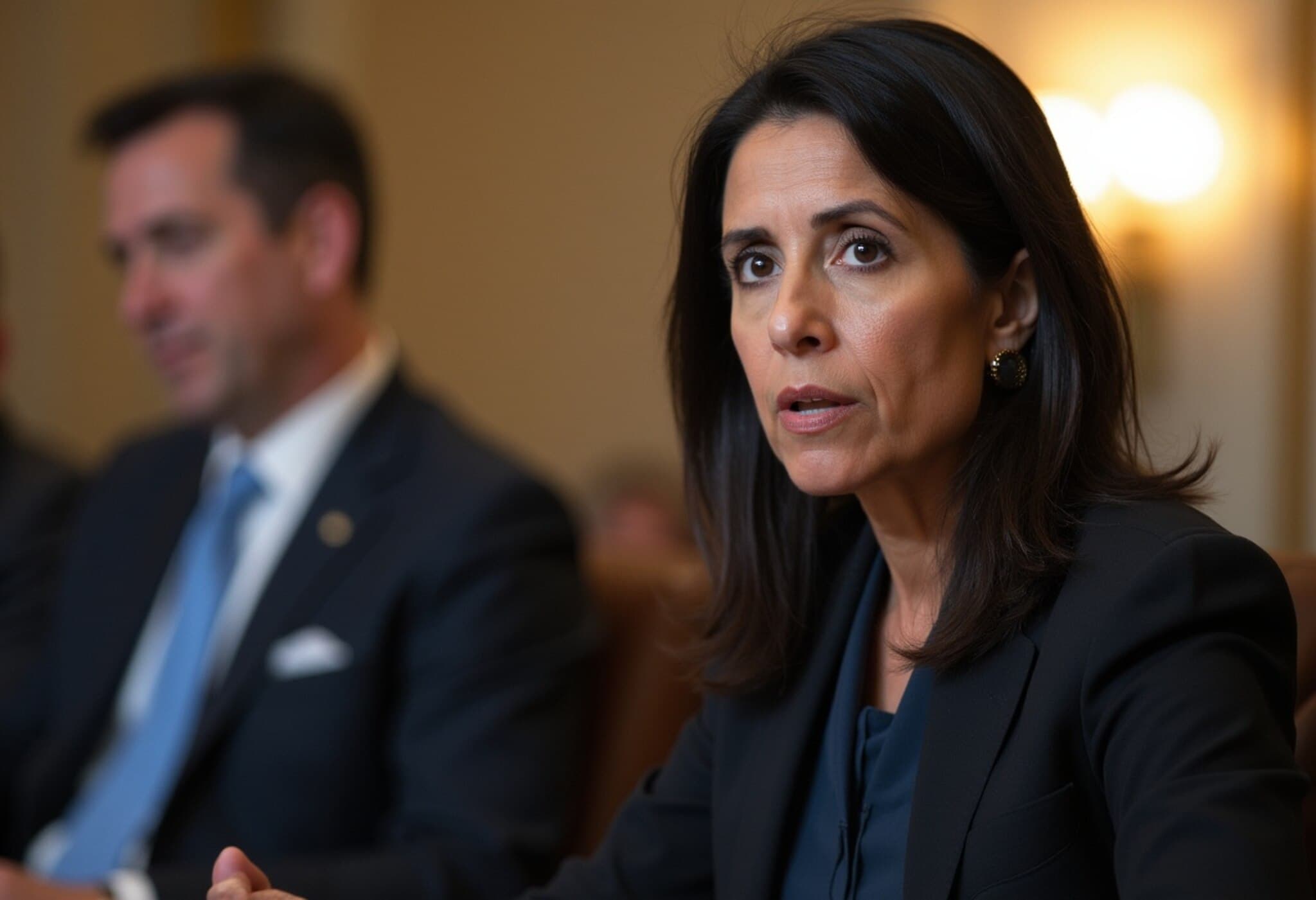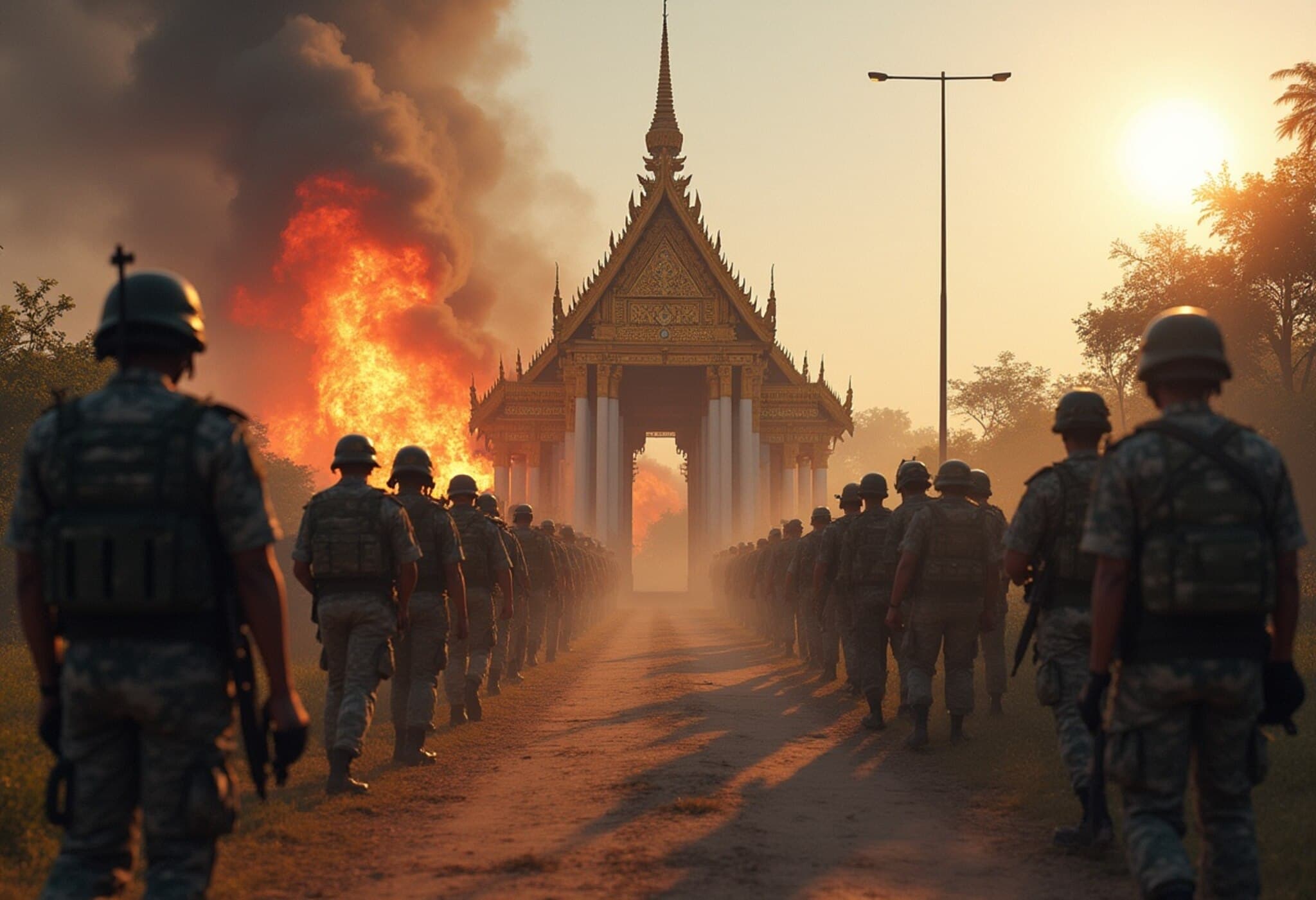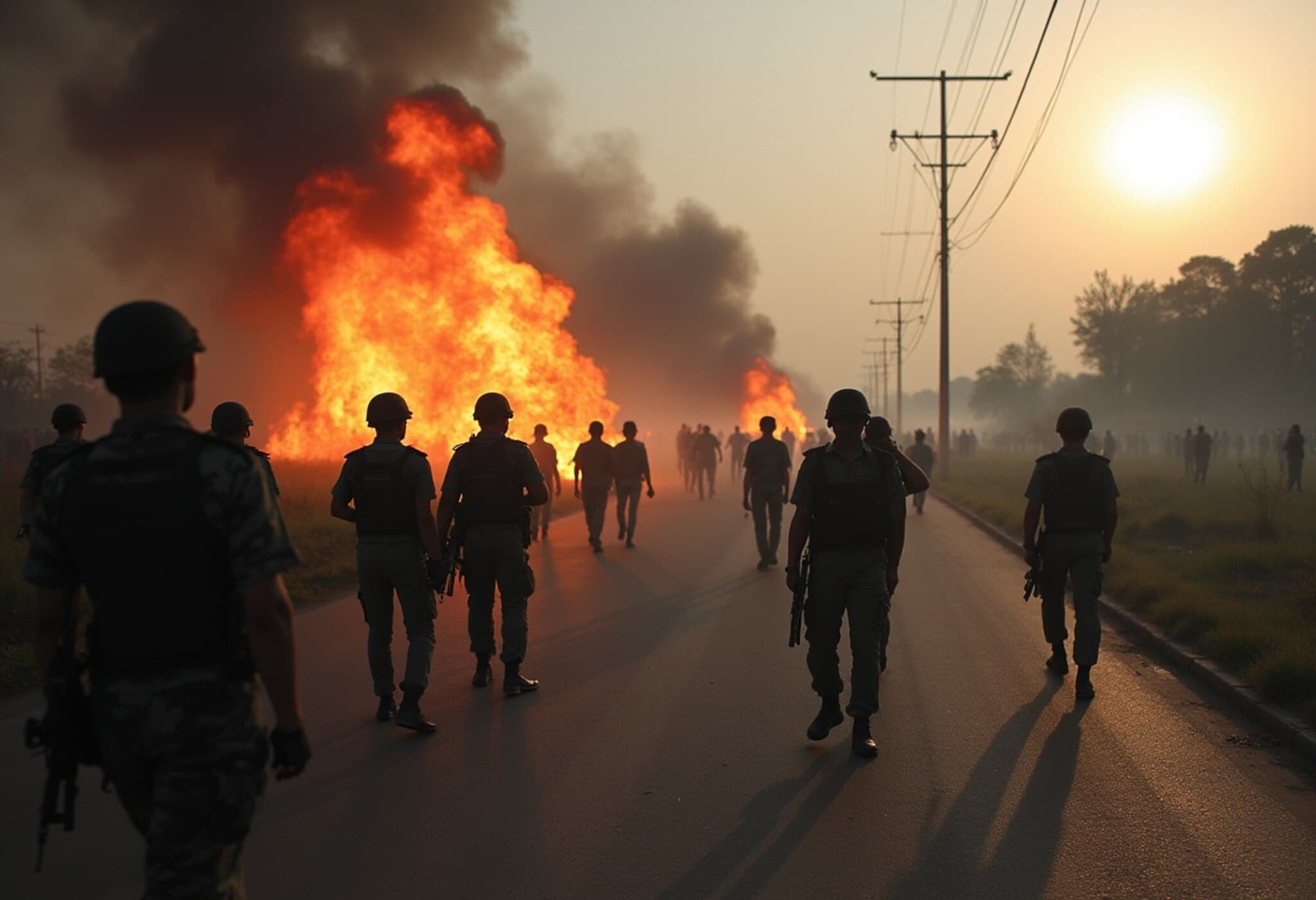Tulsi Gabbard’s Unexpected White House Appearance: A New Chapter in the Russia Investigation Debate
On July 23, 2025, Tulsi Gabbard, the Director of National Intelligence, stunned observers with an unexpected briefing from the White House press room. Tasked typically with safeguarding national security and uncovering foreign threats, Gabbard turned her focus instead toward a politically charged narrative: asserting that the Obama administration orchestrated a covert effort to undermine the 2016 presidential election results by targeting Donald Trump.
Unveiling New Accusations Against Obama Era Officials
Describing her findings as "unshakable proof" of a conspiracy to "subvert the will of the American people," Gabbard alleged that Democratic leaders fabricated evidence to delegitimize Trump’s victory. While much of her argument revisits familiar ground in the ongoing debate over Russia’s role in the 2016 race, her direct accusations against a former administration mark a bold escalation.
However, independent experts and multiple intelligence reports have long affirmed Russia’s interference aimed at boosting Trump’s candidacy, raising critical questions about the veracity and motivation behind Gabbard’s claims.
A Politically Tense Backdrop
Gabbard’s disclosures come at a politically sensitive moment: as controversies swirl around President Trump’s own connections and amid allegations surrounding the Jeffrey Epstein investigation. Many analysts see this move as part of a strategic pivot to steer public attention away from sensitive topics toward a revived scrutiny of the Russia probe.
Trump publicly embraced Gabbard’s revelations, sharing her White House remarks prominently on social media, dubbing her "the hottest person in the room." This endorsement cements her evolving role as a key figure in the Trump political ecosystem.
Declassified Documents and Justice Department Response
Gabbard released a report authored by Republican staffers from the House Intelligence Committee during Trump’s first administration, which questions aspects of the intelligence community’s evaluation of Russia’s intent. Notably, the report underscored alleged "tradecraft failings" but did not dispute Russia’s interference itself.
Among the contested points were references to the infamous dossier containing unverified, salacious claims about Trump-Russia ties, which Gabbard emphasized was improperly used as a foundation for investigations—claims that have fueled partisan debates since 2017.
Following her briefing, Gabbard referred evidence to the Justice Department, which promptly announced a "strike force" to evaluate potential criminal probes. Yet, the timing of these disclosures — years after the original investigations — raises questions about their strategic purpose and impact on intelligence-sharing partnerships.
Reactions from Political Leaders and the Intelligence Community
The Obama office dismissed the allegations as "bizarre" and a "weak attempt at distraction." Meanwhile, White House press secretary Karoline Leavitt defended Gabbard’s motives against accusations of political grandstanding.
Within Capitol Hill, responses diverged sharply along party lines. Democrats criticized Gabbard for blurring lines between intelligence duties and partisan loyalty, with some calling for her resignation to protect the intelligence community’s impartiality. Senator Mark Warner warned that such politicization could discourage allied nations from sharing sensitive information.
Conversely, Republican leaders like House Intelligence Committee Chairman Rick Crawford praised Gabbard’s efforts as part of restoring public trust in intelligence institutions.
The Gabbard-Trump Dynamic: From Skeptical to Supportive
Earlier in 2025, Trump had publicly dismissed Gabbard’s differing views on Iran’s nuclear program. Yet, recent meetings revealed Trump’s alignment with Gabbard’s Russia investigation findings, exemplifying an unusual political alliance grounded in mutual benefit rather than ideological coherence.
Contextualizing the Ongoing Russia Interference Debate
Despite Gabbard’s narrative, extensive bipartisan investigations, including the 2020 Senate Intelligence Committee report, have reaffirmed established conclusions about Russia’s interference and motives. While critiques of intelligence methodologies persist, the broad consensus underscores Russian President Vladimir Putin’s intent to tilt the 2016 election in Trump’s favor.
Independent analysts caution that revisiting this chapter with new allegations requires rigorous scrutiny to avoid fueling misinformation or undermining confidence in democratic institutions.
Looking Ahead: The Fragile Balance Between Intelligence and Politics
Gabbard’s actions spotlight enduring tensions surrounding intelligence neutrality in a hyperpartisan environment. Her revelations prompt critical reflection on how intelligence agencies serve the nation’s interests without becoming tools of political agendas.
- Key questions emerge: Can intelligence leadership maintain trust amid political pressures?
- How should declassification be managed to balance transparency with national security?
- What safeguards are needed to prevent intelligence from becoming weaponized by partisan actors?
Editor's Note
Tulsi Gabbard’s provocative revelations reignite debate over the 2016 election interference and underscore the complex intersection of intelligence work and political maneuvering. As America grapples with these issues, ensuring the integrity and independence of national security institutions remains paramount. Readers are invited to consider the broader implications for democratic accountability and the future of intelligence transparency in a divided political landscape.

